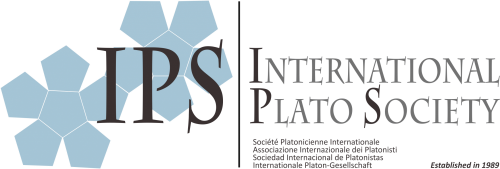According to a middle Platonist, Alcinous, the aim of life is to become as godlike as possible, a theme that Plato addresses in various ways. Indeed, in Republic X, it is said that those who live a life of justice become like god as far as possible for a human being. Famously, in the Theaetetus, Plato argues that to escape from earth is to become like god so far as possible, and this likeness is to be just and pious with wisdom. The concept of godlikeness appears to be intricately connected not just to Plato’s ethics, but also to his epistemological views. In Republic VI, philosophers are depicted as gazing upon and imitating the Forms, thus attaining a divine state. Similarly, in the Phaedrus, the philosopher’s soul is portrayed as following the divine circular motions, beholding the Forms. Do these descriptions represent various approaches to explaining the same philosophical concept, or do they signify different stages in the process of imitating the divine?
Furthermore, Plato’s acknowledgement of celestial gods, alongside more traditional gods, adds layers to his discussion of godlikeness. What roles do these celestial and traditional gods play in one’s pursuit of the ideal form of life? This prompts an inquiry into whether godlikeness is achievable solely through virtuous living, or whether it necessitates an intellectual understanding that transcends practical application. It also raises questions about the influence of Socratic piety on Plato’s ethical views, advocating a life of virtue and philosophical inquiry as the truest form of divine devotion. How does Plato reinterpret Socratic ideas about piety and virtue, and what implications does this have for his conception of a life akin to the divine?
These considerations lead us to the central theme of our upcoming conference: exploring Plato’s concept of godlikeness, as well as his views on gods and divinity, from a variety of perspectives.
Potential Topics
- The meaning(s) of becoming like god in Plato’s texts. How is godliness integrated within Plato’s ethics, epistemology, psychology, and cosmology?
- What constitutes a god in Platonic philosophy? What are the characteristics and nature of divine beings?
- Plato’s critique and inheritance of the notion of traditional gods. How does Plato interact with and transform traditional religious concepts?
- The relationship between gods and daimon/daimones in Platonic thought.
- Plato’s incorporation of specific deities, such as Apollo and Dionysus, into his philosophical framework.
- The relationship between piety and other virtues in Plato’s philosophy.
- Plato’s adoption and adaptation of Socratic piety.
- The later reception of Platonic godlikeness.
Keynote Speakers
Alex LONG (St Andrews)
Noburu NOTOMI (Tokyo)
Shino KIHARA (Kokugakuin)
Venue
Nagoya University Higashiyama Campus
Conference Dates
11th-13th September 2024
Conference Website
https://sites.google.com/view/ipsasia2024
Call for Abstracts
- The conference welcomes scholars from Asia and all global regions.
- If you wish to present at the conference, please read the abstract submission guidelines provided below and submit your abstract.
Abstract Submission Guidelines
- Please submit an abstract of up to 500 words by Friday 10th May 2024.
- Please upload your abstract via the following link.
https://forms.gle/gggrcWUA7Pubxrrf8
- Abstracts should be prepared for anonymous review; please remove any references to the presenter’s name before submission and ensure it is in PDF format.
- Each speaker has 30 minutes (roughly 20 minutes for presentation and 10 minutes for discussion).
- Presentation and discussion will be only in English.
- There will be PhD sessions, where each speaker likewise has 30 minutes. Graduate students and PhD candidates who wish to be considered for this category should check the box on Google Form. We try to include as many speakers as possible in this category.
- The decision will be communicated to all submitters shortly after the deadline.
- Registration will be free.
- Unfortunately, we cannot afford to provide any financial support for selected speakers. So they will need to finance and arrange their own travels, accommodation and so on.
- All questions about submissions should be emailed to organizing committee (2024.asia.ips@gmail.com).
Organizing Committee
Hua-kuei HO, Chinese Culture University, Taiwan (Representative for Asia, Australia, and Africa of the IPS).
Naoya IWATA, Nagoya University, Japan.
Jong Hwan LEE, University of Seoul, South Korea.
Ikko TANAKA, J.F. Oberlin University, Japan.
Sponsor
This conference is financially supported by JSPS KAKENHI Grant Number 23K00035.
